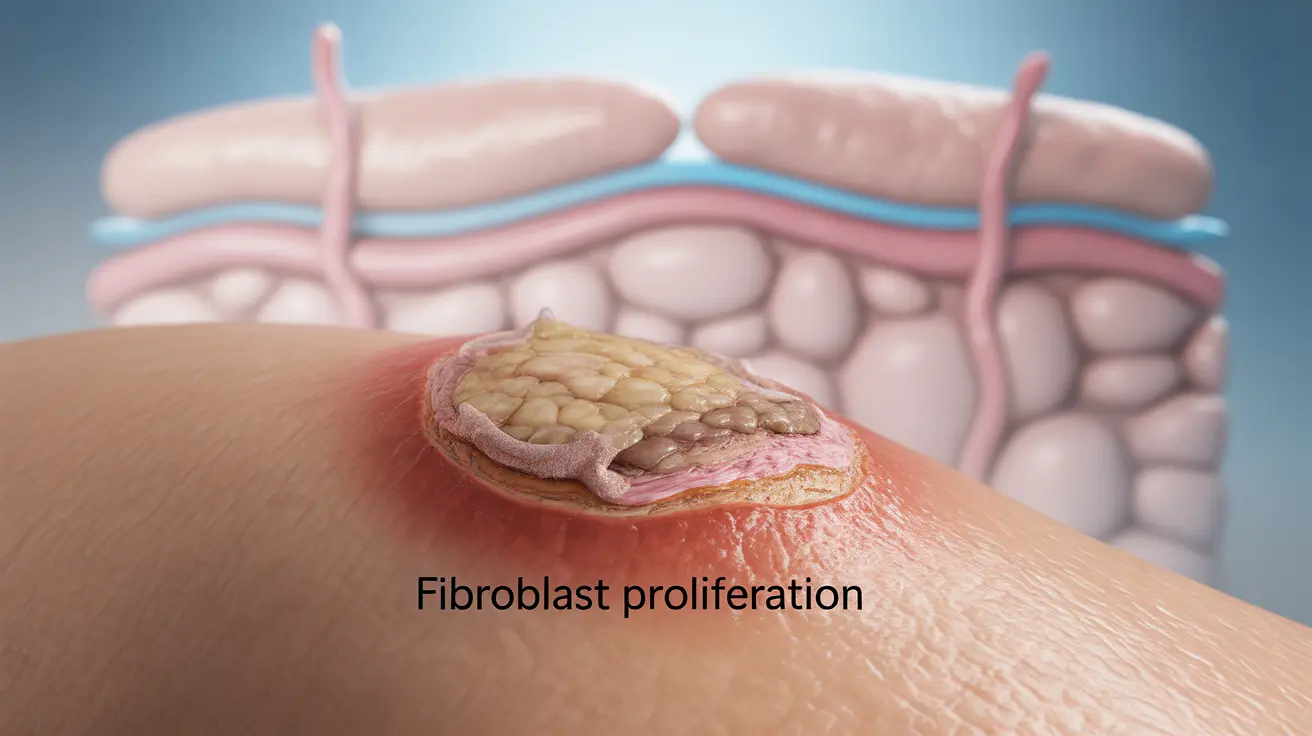When your body is healing from a wound, the formation of a scab is a natural and essential part of the recovery process. However, many people find themselves dealing with an uncomfortable side effect: persistent itching. Understanding why scabs itch and how to manage this sensation properly can help prevent complications and promote better healing.
In this comprehensive guide, we'll explore the science behind itchy scabs, effective relief methods, and important warning signs to watch for during the healing process.
The Science Behind Itchy Scabs
Scabs itch primarily due to the natural healing process taking place beneath the surface. When your skin is injured, your body initiates a complex series of events that involve inflammation, cell regeneration, and the production of new skin tissue. During this process, several factors contribute to the itching sensation:
Inflammatory Response
Your body releases histamine and other chemical mediators as part of the healing process, which can stimulate nerve endings and cause itching. This inflammatory response is crucial for healing but can create discomfort.
Skin Cell Regeneration
As new skin cells form beneath the scab, they can create tension and pulling sensations that your brain interprets as itchiness. This is particularly noticeable as the wound begins to heal and the scab starts to loosen.
Managing Scab Itching Safely
While the urge to scratch can be intense, there are several effective ways to manage scab itching without compromising the healing process:
Moisture Management
Keeping the wound environment properly moisturized can significantly reduce itching:
- Apply recommended wound moisturizers or petroleum jelly
- Use fragrance-free lotions approved for wound care
- Keep the area clean and slightly moist, but not wet
Physical Interventions
Several physical methods can help relieve itching:
- Apply a cool compress to the area
- Gently pat or tap near (not on) the scab
- Keep the area covered with a breathable bandage
- Wear loose-fitting clothing over the affected area
Warning Signs and Complications
While itching is normal during healing, certain symptoms warrant medical attention:
Red Flag Symptoms
Watch for:
- Increased redness or warmth around the scab
- Unusual swelling or pain
- Pus or colored discharge
- Fever or chills
- Scabs that won't heal after several weeks
Tips for Optimal Healing
To promote proper healing and minimize itching:
- Keep the wound clean and protected
- Follow proper wound care instructions
- Maintain good overall hygiene
- Stay hydrated and eat a balanced diet
- Get adequate rest to support healing
Frequently Asked Questions
Why do scabs itch during the healing process?
Scabs itch during healing because of the inflammatory response, the release of histamine, and the regeneration of skin cells beneath the scab. This is a normal part of the healing process.
How can I stop or reduce itching from a scab without damaging the wound?
Apply cool compresses, keep the area moisturized with appropriate wound care products, and use over-the-counter antihistamines if needed. Avoid scratching and keep the area covered with a clean bandage.
What are the risks of scratching or picking at a scab that is itching?
Scratching or picking at scabs can lead to infection, delayed healing, and scarring. It can also reopen the wound and introduce bacteria, potentially causing complications.
How does keeping a scab moist help with reducing itchiness and speeding healing?
Proper moisture levels help prevent the scab from becoming too dry and cracking, which can cause additional itching. Moisture also supports optimal cell regeneration and reduces the likelihood of scarring.
When should I see a doctor about an itchy scab?
Seek medical attention if you notice signs of infection (redness, warmth, swelling, pus), if the wound isn't healing after several weeks, if you develop fever or chills, or if the itching becomes severe and unmanageable with home care.




